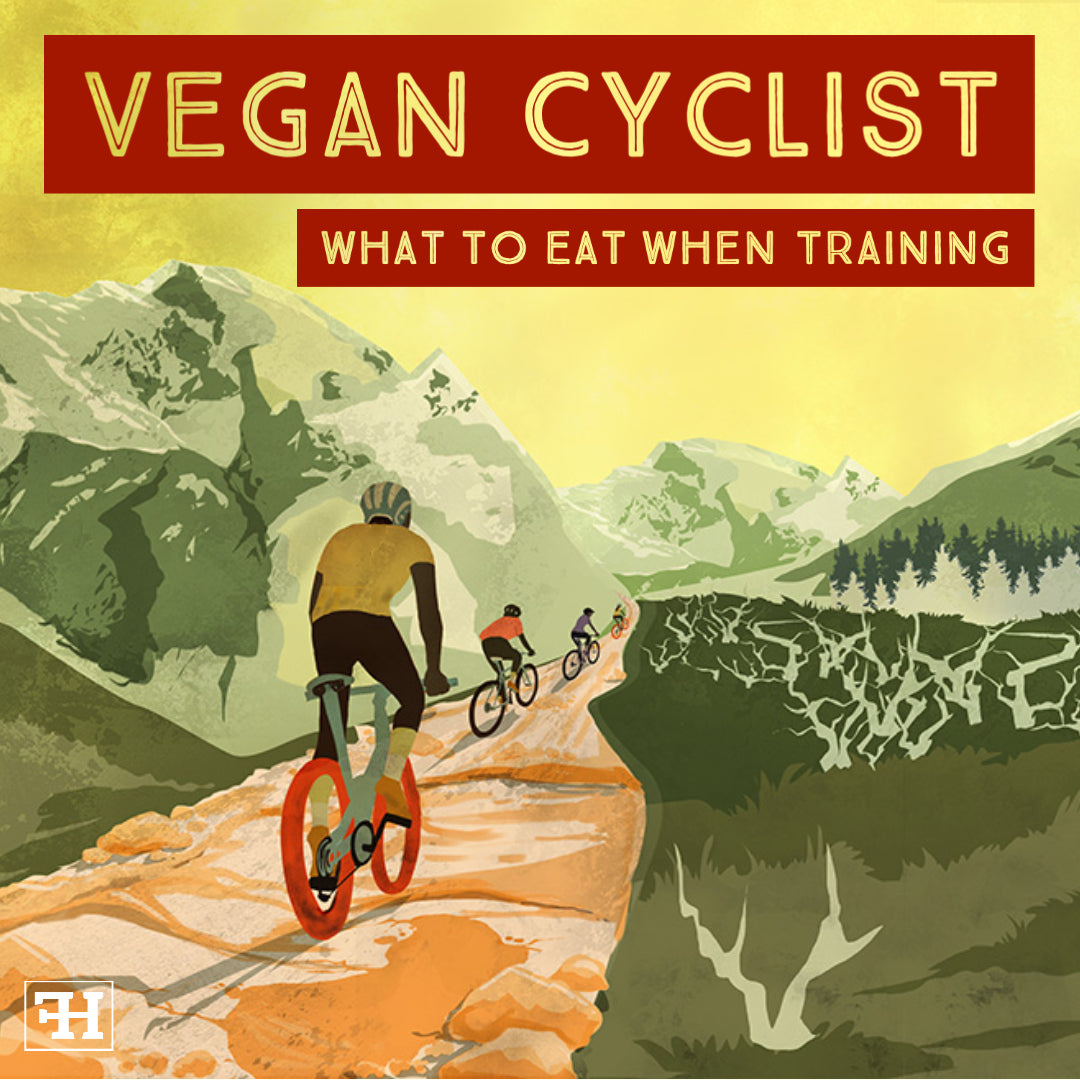
So, you’re a vegan athlete and need a little dietary guidance...
The connection between performance and diet is, at this point, undisputed. Eating better aids muscle recovery, in turn getting you back on the road fitter, stronger, and feeling ready to spin the pedals again.

So, it should come as no surprise that legions of cyclists are becoming vegan out of concern for bodily health, as plant-based diets are high in antioxidants and reduce inflammation. Food can be both a fuel source and medicine.
However, as a vegan athlete, you may not know exactly what to eat when training, or which foods offer incredible nutrition for long days out on the road.
Protein
Let’s get this one out of the way first. Usually, when someone is trying to problematize going vegan, the very first line they’ll use is the ol’ “you can’t get enough protein as a vegan.” Not only is that false, but vegan protein sources are abundant and diverse.
Ways to get vegan protein include:
- Beans & legumes — chickpeas, kidney beans, black beans, lentils, peas, soybeans, peanuts
- Nuts — almonds, pistachios, cashews, walnuts, hazelnuts, pecans, nut butter
- Seeds — flax, chia, hemp seed, sesame seed, pumpkin seed, sunflower seed
- Meat alternatives — tofu, tempeh, seitan, jackfruit
- Grains — quinoa, amaranth, buckwheat, whole grains (wheat, millet, spelt, barley), brown rice
- Supplements — nutritional yeast, protein powders
This list, though not comprehensive, gives you a pretty clear picture of the sheer wealth of protein sources available to vegans. While not all of these sources are “complete” proteins on their own, there is no need to eat a complete protein at every meal.
The body retains essential amino acids throughout the day, so diversity in your diet is key.
Vitamins and Minerals
Another strength of a vegan diet is that it often forces you to get creative. Can’t use a pancake mix containing eggs and milk? No problem -- use spelt, coconut oil, flax, cashew milk, bananas, and dates for sweetener instead.
Getting creative and pulling from a broad array of food sources means your vitamin and mineral intake also prospers. A simple seed-packed muesli breakfast contains calcium, magnesium, iron, vitamins A/C/E, and healthy fats if there are nuts like cashews, almonds, and walnuts inside.

Additionally, when you think of being vegan, you probably also think of eating, well, vegetables.
Leafy greens are in high supply almost anywhere you look, making for bottomless salads that are as antioxidant vitamin dense as one can hope for. A big spinach salad heaped with garbanzo beans, avocado, tomatoes, and even a bit of *nutritional yeast* is a lot like taking a multivitamin -- except it tastes way better.

Carbohydrates
This is the one category that everyone is happy to satisfy. During a ride, there are plenty of carb-rich energy sources to choose from, such as gels, homemade rice cakes, and handheld Belgian waffles. These simple foods keep you going during long days out on the bike.
After the ride, especially if it was one with intensity, you’ll need to top your glycerin levels back up so that you can adequately take in protein and repair your muscles. Again, any simple carbohydrate will do here, with rice and beans being a perennial (and inexpensive) favorite.
Lotto Soudal rider Adam Hansen has been vegan for several years and has completed over 25 grand tours, including the Tour de France. He advocates for a well-rounded diet that takes in a healthy variety of the above-mentioned foods while supplementing with vegan protein powder.
As a vegan athlete, you’ll likely find that a blender is your best friend. The best part about being a plant-based cyclist? Knowing that you’re treating mind, body, and planet well while remaining competitive.
The Tour De Fierce Ultralight Cycling Wallet is big enough for all of your riding essentials, but it does not hold a coconut.
Sign up for our newsletter
Stay connected with Fierce Hazel and sign up for our newsletter to be the first to know of new posts, news & promotions.




